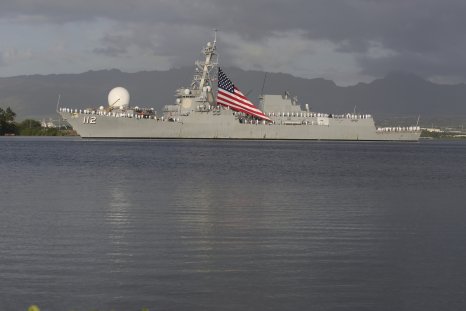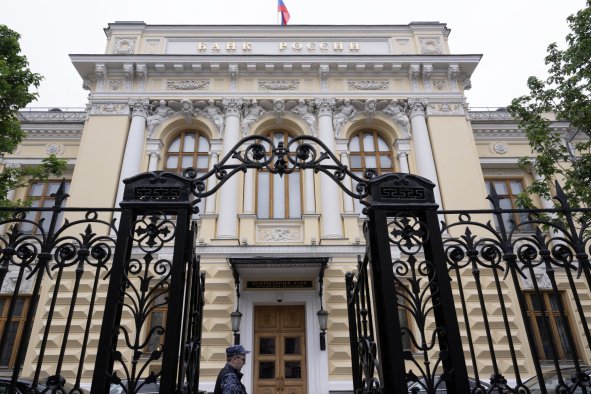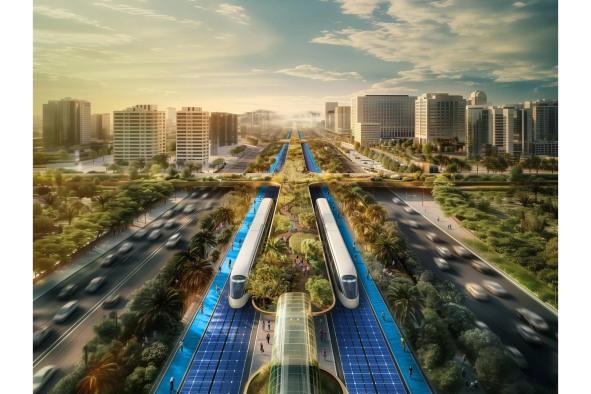Saudi Arabia and the U.S. have signed a new agreement to "strengthen collaboration" in space exploration, marking progress on another key tenet of the Kingdom's Vision 2030.
According to NASA, who announced the agreement on July 16, the agreement "establishes the overall legal framework to facilitate and strengthen mutually beneficial collaboration between the two countries."
Though the full details were not disclosed, NASA said that the pair will cooperate in the fields of "space science, exploration, aeronautics, space operations, education, and Earth science."
NASA Administrator Bill Nelson, who signed the agreement on behalf of the U.S., said: "This new agreement outlines how we'll work together, and explore together, for the benefit of humanity."
Nelson visited Saudi Arabia in May, having already travelled to Italy and Vatican City, a trip NASA said would help to "underscore the importance of civil space cooperation for the broader United States and Saudi Arabia relationship."
"The agreement represents a turning point in the Kingdom's journey towards building a strong and prosperous space sector," according to Saudi Space Agency Chair Abdullah bin Amer Al-Swaha. "It reflects the Kingdom's firm commitment to progress and innovation in the field of space, and its continuous efforts to enhance its position as an important partner on the global stage for space exploration and scientific discovery."
Saudi Arabia has gradually increased its investment and focus on space exploration over the past few years.
In 2018, the country established the Saudi Space Agency, symbolizing its desire to become a major player in the space sector.
In May 2022, the SSA partnered with Axiom Space to send the first Saudi astronauts to the International Space Station aboard a SpaceX Crew Dragon spacecraft.
In July of that year, the country became a signatory to the international Artemis Accords, a non-binding set of principles established in 2020 to encourage and guide peaceful space exploration.
Three months ago the SSA and the World Economic Forum signed an agreement to establish the Center for Space Futures in Riyadh.
Set to open in Autumn 2024, the WEF said that the hub will "contribute to local and global advances in space technologies and sustainability."
Karim Elgendy, a fellow at the Middle East Institute, told Newsweek that Saudi Arabia's focus on space exploration should be viewed through the lens of "industrial development and research."
"Like other nations that used space exploration to push the boundaries of research and technology, Saudi Arabia's partnership with the US on space exploration could provide it with access to cutting edge science and technology."
These efforts also comprise part of the Saudi Arabia's Vision 2030, according to the SSA, who touted the space sector as a "key driver" in the country's technological advancement.
Vision 2030, unveiled in 2016 by Crown Prince Mohammed bin Salman, aims to reduce the country's economic dependence on oil revenues, while also developing other sectors, such as tourism and infrastructure, within the Saudi economy.
Key projects included in this vision are Neom, a desert megacity hoped to house more than eight million residents, and Green Riyadh, a mass afforestation initiative in the nation's capital which will supposedly multiply green space and drastically improve the city's air quality.
However, several Vision 2030 projects have become victim to their lofty aspirations.
Construction of Neom has already halted due to rising costs and engineering issues, its planners now grappling with the challenges of constructing an urban metropolis in the country's arid and remote Tabuk Province.
Do you have a story we should be covering? Do you have any questions about this article? Contact LiveNews@newsweek.com.
Disclaimer: The copyright of this article belongs to the original author. Reposting this article is solely for the purpose of information dissemination and does not constitute any investment advice. If there is any infringement, please contact us immediately. We will make corrections or deletions as necessary. Thank you.



